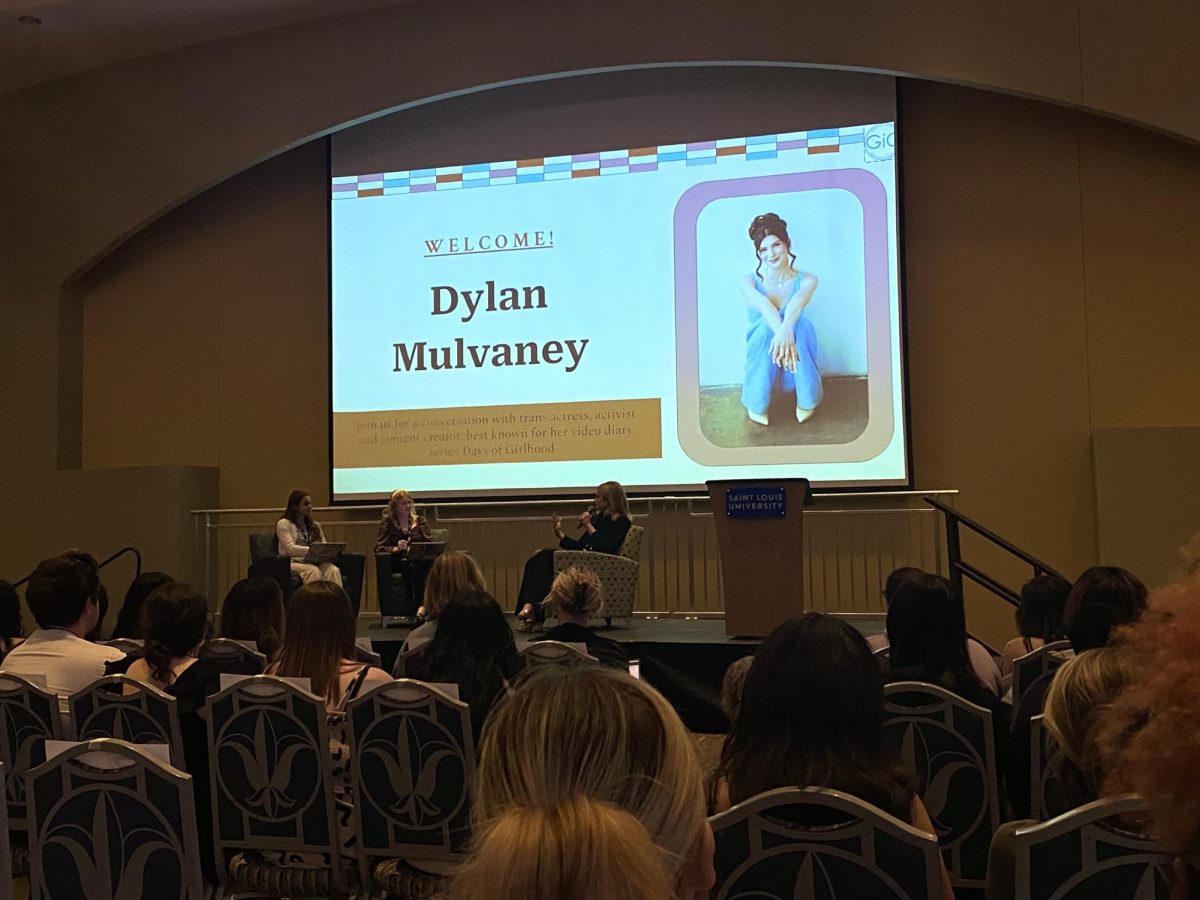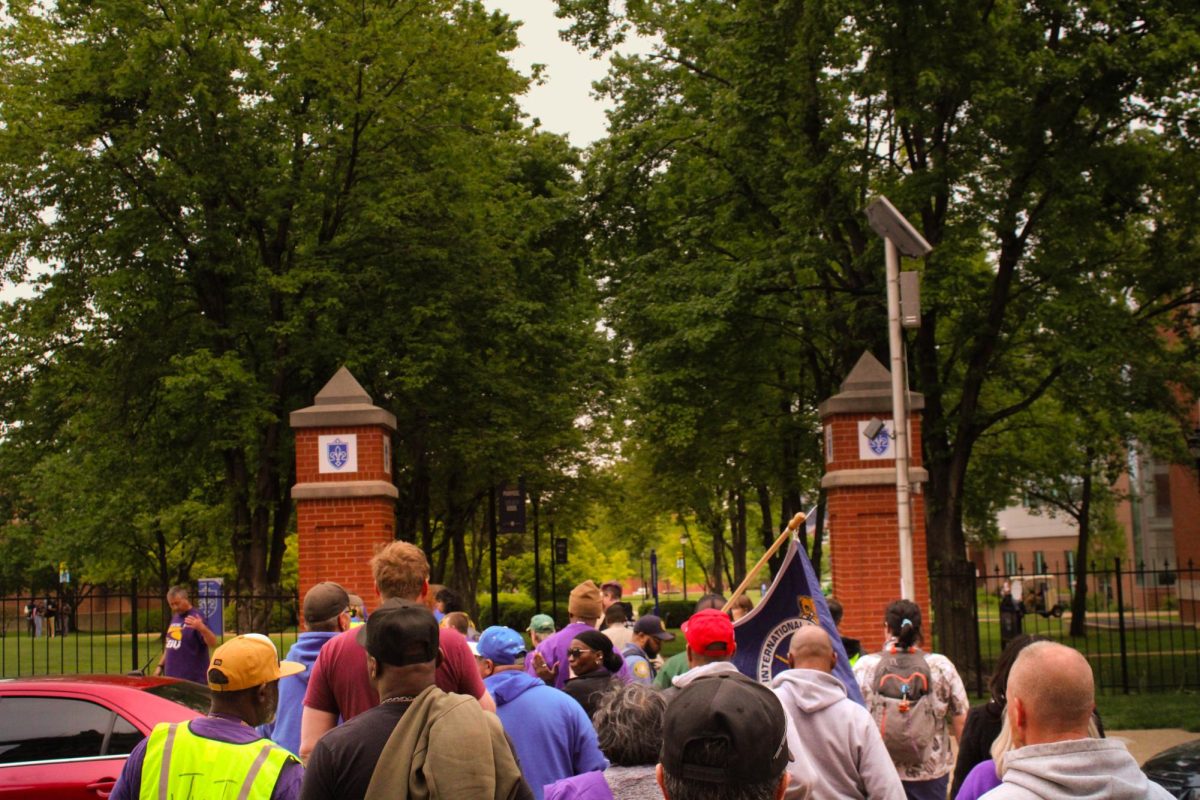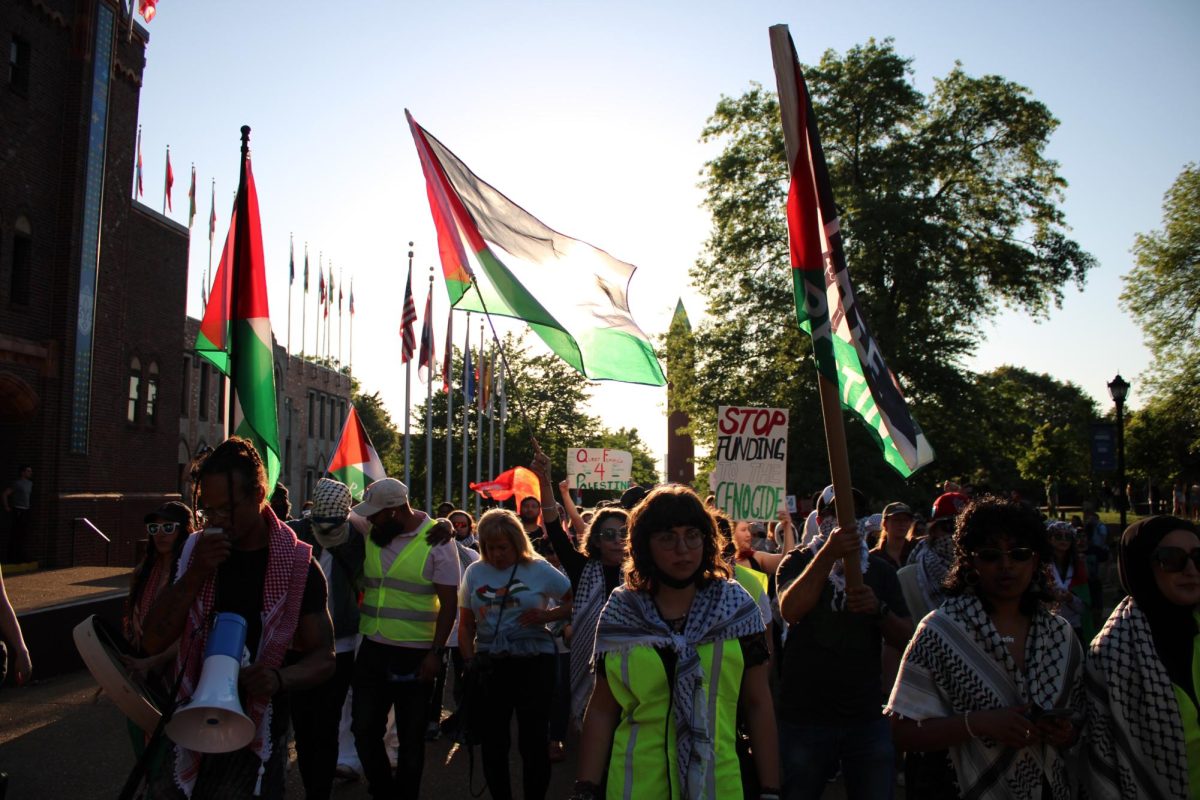Sister Helen Prejean spoke to a crowd of around 800 last night about her experiences working with criminals sentenced to death. Prejean wrote the New York Times bestseller, turned Oscar-winning movie, turned opera, "Dead Man Walking."
"I kind of have to remember where I am right now," said Prejean. "I've been so many places lately, I'm a 'roaming' Catholic nun."
Prejean spoke as a part of Death Penalty Awareness week on campus. She was joined for the first time by Stanley Allridge, the brother of James Allridge, who was convicted and put to death. The event was sponsored by Black Student Alliance, Student Activities Board, VOICES, Amnesty International, SGA's Social Justice Committee and Campus Ministry.
Since beginning her prison ministry counseling inmates on death row in 1981, Prejean has written two books, "Dead Man Walking" and "The Death of Innocence," and has been present at five executions.
"I got a lot of stories, and I never dreamed I was going to be involved in this," said Prejean, in her distinctive New Orleans accent.
Prejean talked about the lives of the different criminals that she has counseled and the overall topic of the death penalty.
"How can we get the truth, when Joseph Odell, the second person I write about in this book 'The Death of Innocence,' says he defended himself in trial?" Prejean asked. "He said it was like the L.A. Rams up against a high school varsity team. He didn't even know how to file a motion, you know, he didn't know how to do cross-examination of witnesses."
"The poor jurors are asked to play god. How do the courts legalize death?" Prejean asked. "When we can hardly trust the government to fill the potholes?"
Prejean said that after witnessing her first execution, she threw up. She said that no one truly realizes how horrendous the death penalty truly is until they witness it.
"Everybody is sleeping," she said. "It's almost like a secret ritual."
Prejean's treatise on the death penalty and racism within the system was teeming with shocking facts about the U.S. prison system; for example, of the 2.2 million people in prison, 1 million are black men. One in three black men ages 20-29 are in prison. Although whites outnumber blacks on death row 50 percent to 48 percent, the rate of executions of blacks is much higher. Eight out of 10 inmates are executed for killing white people.
The states that are considered to be in the "Death Belt," such as Virginia, Texas, Florida and Missouri, are states that were once heavily connected to slavery.
"The more Christian the government, the more they execute," Prejean said. "Religion is used to support a god of violence in this country. No one can be cut out of the web of life."
Prejean went on to tell the story of Doby Williams, a young black man convicted and executed for stabbing a white woman in her bathroom. Williams was apprehended, and supposedly confessed to the murder, although there was no physical evidence of a confession. It was the word of the victim's husband and three Louisiana police officers against Williams.
"Doby didn't have any blood on him. He must have come in through the window nude," Prejean said. The window was "as big as a microwave oven," Prejean said, and Williams left no footprints, no fingerprints and not even a smudge on the window, meaning he would have had to launch himself through the window, like a gymnast.
"He could have gone to the Olympics," Prejean said.
Despite the lack of evidence in Williams' case, he was convicted by an all-white jury, eight of whom were women.
The story of James Allridge is the epilogue of Prejean's latest book, "The Death of Innocence." Stanley Allridge, brother to James, spoke directly after Prejean, and shared the touching story of his childhood, growing up with two brothers in jail. Allridge's two older brothers, Ronald and James, were both executed under Texas state law for killing a convenience store clerk. Allridge witnessed both executions.
"I just want to let people know how hard it is. It was really a traumatic time in our lives," said Allridge. "I didn't know how it would affect me until it happened again."
Allridge's speech was supplemented by projections of his brother's artwork-colorful drawings he created while waiting on death row. Allridge said that his brother wanted to show that he was no longer a threat to society and he could still bring beauty to other people.
After Allridge, Prejean fielded a few questions from the audience, which
deviated from the original focus, to ROTC and the general discussion of what constitutes a pro-life issue.
"We have to build a society where it is easier to be good," said Prejean. "We are complicit if we do not raise our voices."
Freshman Andrew Clifton, who introduced the speakers and spearheaded the effort to bring Prejean and Allridge to campus, closed out the speeches with James Allridge's last words-"I leave this world the way I came into it, with love."






